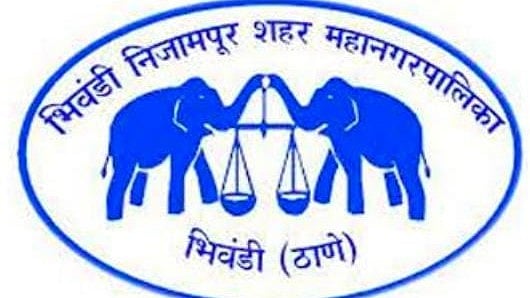In recent years, the Indian dietary supplement business has grown dramatically. According to a recent report, the market reached INR 436.5 billion in 2022 and is expected to reach INR 958.1 billion by 2028, growing at a compound annual growth rate (CAGR) of 13.5% between 2023 and 2028. Vitamins, minerals, and dietary fiber currently dominate the market, followed closely by the herbal and protein segments.
Several factors, including diminishing soil quality, modern food practices, sedentary lifestyles, and the difficulty of maintaining a balanced diet, can be attributed to this trend. The COVID-19 pandemic has highlighted the significance of preventive measures, driving rising demand for dietary supplements. Dietary supplement use is likely to rise in the future years, thanks to an expanding customer base and a bright market outlook.
What are supplements
Nutritional supplements are essential for bridging nutrient gaps in diverse diets and meeting specific dietary needs. For instance, to fix hair fall. “Hair fall is not an external condition. It’s your body’s way of telling you that there are internal health problems that you need to focus on. These problems can range from nutrient deficiency, to stress, to digestive issues and so on,” says Saloni Anand, Cofounder of Traya. “Nutritional supplements can help address these. Essential hair vitamins and minerals such as zinc, biotin, vitamin B3 nourish your hair cells. Supplements containing ingredients such as green tea, pygeum and pumpkin seed extract help block production of excess DHT (an excess amount of DHT results in hair loss). Nutritional supplements can also help promote blood flow to your hair and skin.”
There are supplements created specifically for vegans, vegetarians, those who have poor digestion, and people who want to lose or gain weight. Furthermore, supplements for specific age groups, such as children, the elderly, and women, are available to meet their special nutritional needs. The ease with which these supplements can be incorporated into hectic lifestyles makes them popular among millennials who are often on the go.

Apart from this, the demand for nutritional supplements in the market also opens plenty of opportunities in the nutraceutical industry. Varun Khanna, Co-Founder, Fast&Up, adds, “More and more brands are investing in research and development to create new and innovative supplement formulations that meet the evolving needs of consumers. Overall, the rise in demand provides significant opportunities for nutraceutical brands to grow and expand their business.”
Market Trends
Different age groups have varying preferences when it comes to nutritional supplements. The primary target audience for protein supplements tends to be men aged 18-35, as their need for bodybuilding is more prominent. Energy and amino acid supplements are popular among young adults aged 20-30, while weight loss supplements are commonly used by individuals in the 20-30 age range, closely followed by the 40-50 category. Weight gainers are sought after by men aged 18-30, and multivitamin supplements are generally chosen by individuals aged 20-40.
Furthermore, experts suggest that there are noticeable differences in supplement usage between genders. Himmath Jain, Co-Founder, As-It-Is nutrition, states that, “In terms of choosing supplements for gaining muscles, bulking, and performance boosters, males exceed. In terms of choosing supplements that aid in weight loss, improve body shape, and other reasons, females exceed. In terms of using protein supplements to compensate for protein deficiency, both males and females take an equal stand. With the increase in women's participation in fitness centers, women are likely to get more exposure to protein consumption this year.”
This demonstrates that all genders acknowledge the value of protein supplements in addressing protein deficits. Furthermore, the growing popularity of women partaking in physical activities will contribute to increased protein consumption in the coming years, reducing the gender gap in supplement usage.

Risks And Measures
Individuals should be aware of the potential risks associated with the use of nutritional supplements. For instance, the possibility of unpleasant reactions or side effects is a substantial risk. Despite the fact that supplements are marketed as natural and harmless, they may nevertheless cause allergic responses, gastrointestinal difficulties, or interact with prescriptions. Another danger is the possibility of overconsumption. Some people wrongly believe that "more is better" when it comes to supplements, resulting in an excessive intake of particular nutrients. This can lead to nutrient imbalances, toxicity, or negative interactions with other nutrients.
Relying on supplements too extensively may lead to a neglect of a well-rounded and balanced diet, depriving the body of critical nutrients present in whole foods. Additionally, customers cannot assess the efficacy and safety of supplements without thorough research and clinical trials. Gautam Bali, Managing Director, Vestige Marketing Pvt. Ltd., says “It is important to note that the use of health supplements should be under the guidance of a healthcare professional. Some supplements may interact with medications or have unintended effects, so it is important to ensure they are safe and appropriate for an individual's needs.”
The rising health consciousness and desire to address vitamin deficiencies and lifestyle diseases are reflected in India's increased consumption of nutritional supplements. These supplements not only make up for vitamin deficits in various diets but also meet specific dietary requirements. While the Indian market for dietary supplements is expanding significantly as a result of a number of factors, it is equally important to understand how to safely use these products. So, to ensure their safety and usefulness for particular needs, supplements should only be used under the guidance of qualified healthcare professionals. With the industry's continuous growth and changing customer tastes, nutritional supplements are likely to play a growing role in supporting holistic well-being in India.










